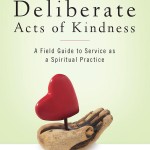
Image: Pixabay
Sometimes the quirks of evangelical subculture becomes fodder for inside jokes and on better days, helpful critical analysis within the subculture. But recently, one particular feature of evangelicalism has made its way into public consciousness, a habit called the Billy Graham Rule. Named after the famous evangelist, the rule is Graham’s self-imposed standard that he should never spend time alone with a woman without his wife present, in order to avoid temptation and compromise integrity. Mike Pence, the VP of the United States, seems to have adopted the rule when he told the Hill he won’t eat a meal with any other woman besides his wife.
Many have pointed out, rightfully so, the sexism ingrained in the BG Rule, that diminishes men’s moral agency and reduces them into lust-filled creatures who view women as sex objects. The BG rule also acts against women by preventing access to high level meetings and building professional connections in the workplace.
However, what frustrates me most about the BG rule used by grown ups is that living by rules is still the framework that dictates ethical living. I often feel as if evangelical adults do not move past the developmental phase of differentiating. As long as rules are in place to make your daily life decisions, one never needs to develop the ability to discern for oneself whether those choices are good and healthy given the vast diversity of individual circumstances. It is as if these adults in their 30s, 40s, 50s and beyond, still live as children and teens who need to be told exactly what to do with rules and guidelines.
The BG rule maybe good and right for a specific person, during a specific time or season, with particular people and contexts. Mature, thinking adults should be able to discern for each of themselves when and how to spend time with mixed gender company in a variety of situations. Applying a strict rule and then publicly announcing it comes across as immature, which is why I believe Mike Pence was ridiculed for it.
So then, what does it mean for those of us parenting children and teens, trying to raise them into adults who have a healthy way of navigating mixed gender relationships in the world?
First, I’d say that rules aren’t necessarily bad. They act as scaffolding to prop our children up to protect them while they are growing and maturing in their decision making faculties. So if a mother makes a rule that her 12 year old girl may not have sleepovers with boys, there may be good reason for this. But scaffolding is meant to be taken off eventually, and rules should bend as the children grow and eventually broken if need be. Unfundamentalist parenting is to raise children who are rule breakers, not rule followers—not to wreak havoc, but to subvert unjust systems that hurt people.
What we know today is that gender exists on a spectrum, and people exhibit different expressions of gender, identity, and orientation. Heteronormativity and sexism are systems of oppression that harm women and the queer community. We need to raise children who are respectful of the humanity in others regardless of their gender, identity or orientation, and we also need to be vigilant against the messages in society which challenge that.
In parenting, this means we listen to what our children are saying, whether the narrative they are internalizing from the wider world is dehumanizing to people. Playground taunts that generalize and demean, “girls are snotty,” or “boys are perverted,” which come home via the children are opportunities to reinforce, “boys are human, girls are human, we’re all just human.”
When sticky situations arise like whether your high school son who is dating a girl wants to go out with another girl who is only a friend, or whether co-ed Spring Break trips should be allowed without adult supervision, it may be appropriate for a parent to institute a rule and demand it be followed, but always the end goal is to raise kids into adults with moral agency of their own. Always, the rule should be undergirded with discussion of who it is we are calling our children to be? What kind of person are they becoming?
Because those who follow rules end up digging their heels in outdated ideology, but adults who learn to become people of deep moral character will have the capacity to expand in love, inclusion, and imagination.
I asked my son what he thinks about his Dad going out to dinner with another woman without me. He says, “I think it’s okay if she’s just a friend and you know about it.” At ten years old, he can already view a woman as a human being instead of a threat, as well as understand the importance of honesty in a marriage. I say this not to brag, but, uh, what the heck, YA I SAY THIS TO BRAG. He gives me hope that it is possible to raise the next generation to develop healthy relationships with mutual respect for all along the vast and beautiful gender spectrum.
Get a free download of a Christian parenting manifesto that helps us guide children into healthy spirituality + the most helpful parenting resources with progressive values.












